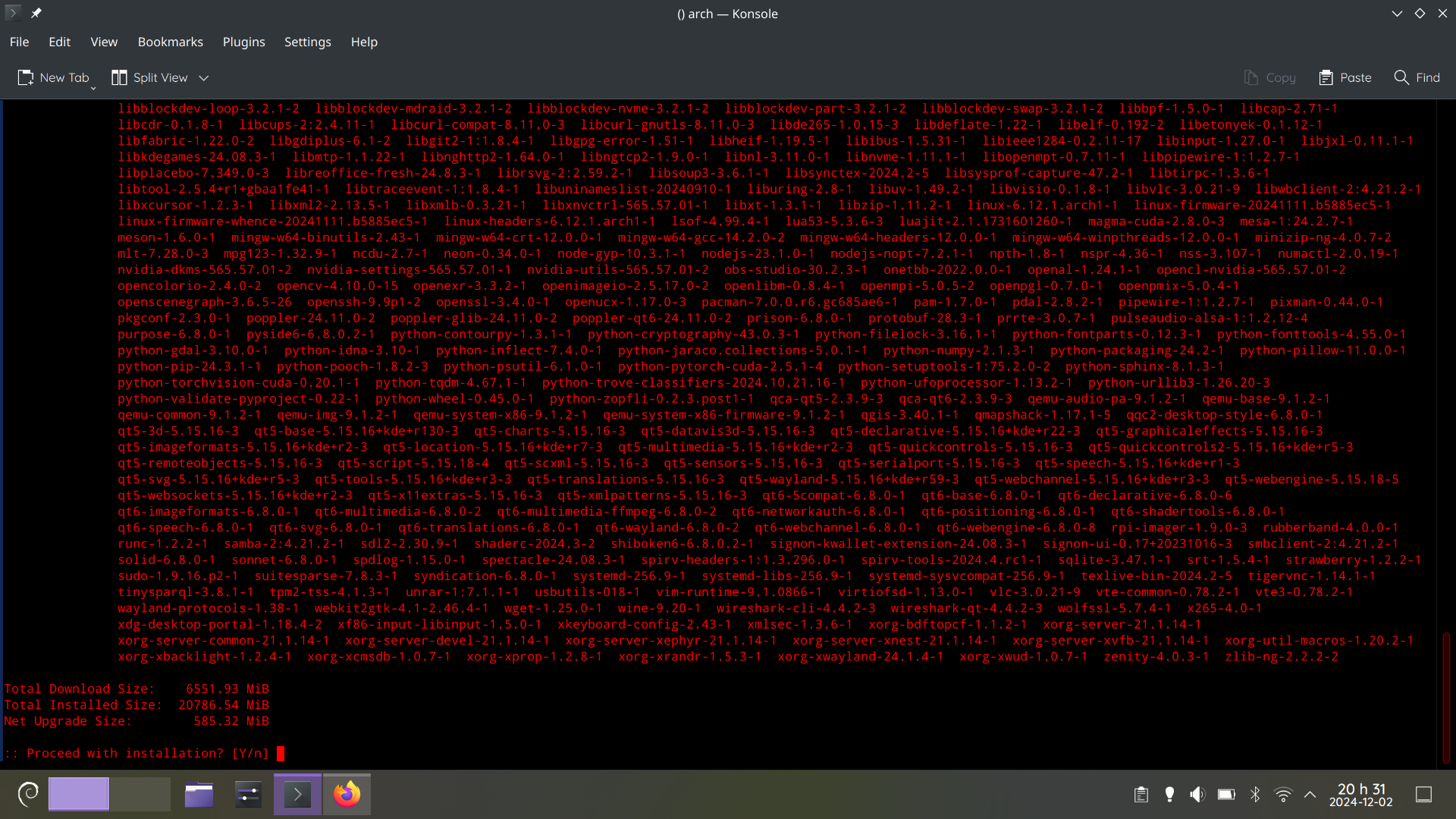this post was submitted on 03 Dec 2024
293 points (97.4% liked)
Linux
49008 readers
1944 users here now
From Wikipedia, the free encyclopedia
Linux is a family of open source Unix-like operating systems based on the Linux kernel, an operating system kernel first released on September 17, 1991 by Linus Torvalds. Linux is typically packaged in a Linux distribution (or distro for short).
Distributions include the Linux kernel and supporting system software and libraries, many of which are provided by the GNU Project. Many Linux distributions use the word "Linux" in their name, but the Free Software Foundation uses the name GNU/Linux to emphasize the importance of GNU software, causing some controversy.
Rules
- Posts must be relevant to operating systems running the Linux kernel. GNU/Linux or otherwise.
- No misinformation
- No NSFW content
- No hate speech, bigotry, etc
Related Communities
Community icon by Alpár-Etele Méder, licensed under CC BY 3.0
founded 5 years ago
MODERATORS
you are viewing a single comment's thread
view the rest of the comments
view the rest of the comments

I don't think this is true. The package manager is there for a reason to prevent that. If you have more updates to install at a time, then the chances are the same as if you would have installed the problematic update one at a time. Just read the manual intervention information from Arch and see if there is something to do, then it won't bork. If people don't know what they are doing and do not read the additional information (that is required to do so on Arch), well yes, then you could end up borking your machine. But not because so many updates are installed at a time. The package manager and operating system and their maintainer designed it in a way that you can install ton of updates at a time without borking. This is fine.
Between this comment about arch and the other comment about opensuse, it must only be apt which has issues with large updates with complicated dependency chains. I remember 5-6 years ago Ubuntu borking itself when I tried to update after a decent gap and had 100+ packages to update. There is also the fact that people used to advice me to make a clean install in lieu of updating whenever a new version of Ubuntu dropped.
Before my switch, i used Ubuntu exclusively for 13 years in row. I always heard of problems (and not at least because of the PPA repositories) when upgrading from one major version to the next, be it a LTS or not. I never did that and always installed fresh because of these stories. Mostly 4 years in between, or sometimes 2.
Its entirely possible that most problems happened because of packages from PPA that the user did not change for the new upgrade. Because PPA repositories were often designed for a specific version of Ubuntu. So its not entirely the fault of the
aptpackage manager in that case.No, it's just that Ubuntu never correctly upgrades between releases.
I've tried so many times, and it basically always failed.